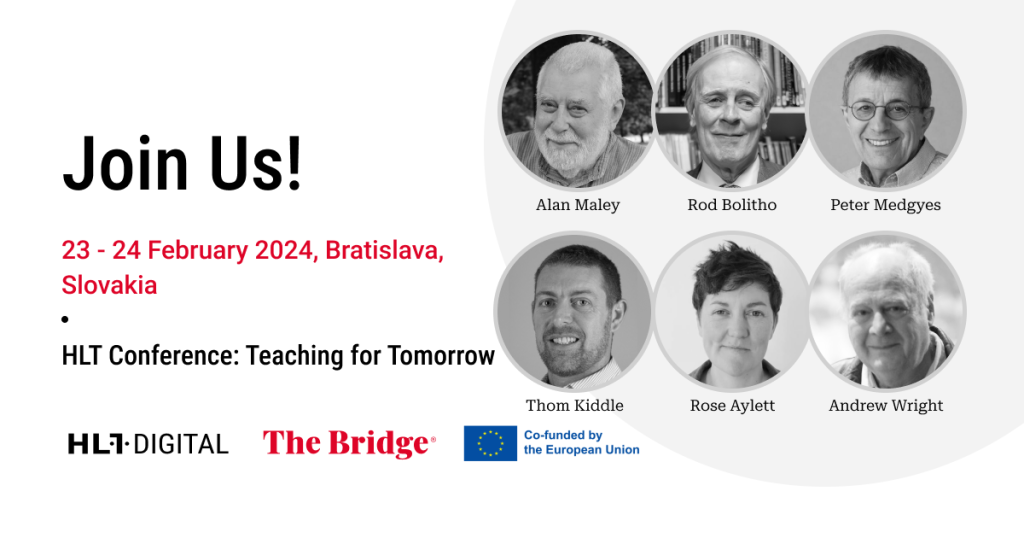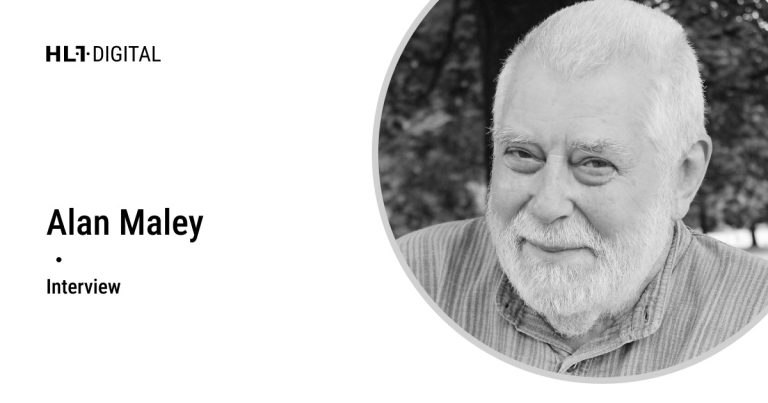Can you provide a brief overview of your background and expertise?
I’ve been involved in the teaching of English as a foreign or second language since 1962, so I am something of a dinosaur, if not yet quite a fossil.
I started out with the British Council in Yugoslavia, which was still under Tito’s communist regime at the time. I moved on to Ghana, where I spent 5 happy years, mainly involved with primary school teachers. From there I moved to Italy. I was in Milan and looked after the North and my colleague, Donn Byrne was in Rome, looking after the South. We worked mainly with secondary school teachers and were very involved in the setting up of a new teachers association called LEND (Lingua e Nuova Didattica). I then moved to Paris, where I spent over 6 years as English Language Officer, working mainly at secondary and tertiary levels. It was there I worked with Alan Duff, writing a number of resource books for teachers – a magical time when everything was possible. China was my next posting – just after the death of Mao and the fall of the Gang of Four, and the first stirrings of a new China under Deng Xiao Ping. That was an amazing time to be there and I was lucky to have permission to travel widely all over that vast country. I also helped set up VSO in China, and did the trialling for what is now IELTS. I moved to India as Director, South India in Madras (now Chennai) but with special responsibility for English all over the country. Again an amazingly varied and rich set of experiences. It was there that I met and worked with N.S. Prabhu, who was just finishing his Bangalore Project, based on a Procedural, Task-based syllabus.
I resigned from the British Council in 1988 and moved to Cambridge as Director-General of the Bell Educational Trust, where I stayed for 5 Years. The private language school world was new to me. Among other things, we were one of the founders of EAQUALS.
From there I moved to Singapore as Senior Fellow at the National University of Singapore and stayed 5 years teaching undergraduate and MA courses, and then I moved to Bangkok to set up an MA in TESOL – one of the most rewarding times of my life – with students from all over Asia – and a free hand to introduce courses I felt were important – including creative writing.
Since then I have done teaching and other assignments in universities in Malaysia, Cambodia, Germany and Vietnam – and have been able to continue to write and publish articles and books – a great privilege. But my main current interest is in helping to coordinate an international creative writing group – ‘Worlds into Words’.
What are the main takeaways or insights you aim to deliver during your talk, and how do you believe they will benefit the audience?
The world faces an environmental catastrophe on many fronts. This is no longer some hypothetical future event – it has already started and is moving along apace. There is no time left to waste. The continued existence of our species is at stake.
Education cannot alone solve this monumental set of problems but it has a role to play. Teachers wield tremendous influence over their students on an individual level, and no one is too small to make a difference. However, teachers acting together through an association like IATEFL or an institution, like The Bridge, can have even more impact in informing, inspiring, involving and implementing practical actions. As teachers of English, we have a unique opportunity to provide learners with access to language and skills they can use to engage with the climate crisis in their own contexts.
That is what I would like the audience to take away – and do something about. There are any number of reasons (excuses) for doing nothing. But they all lead to disaster.
Can you recall a particularly memorable experience related to teaching or training that left a lasting impact on you?
There have been so many. Once in Ghana, a primary school class became enthused with developing a whole project based on the local deer festival. They made puppets and acted out their own dramatization of the festival, they raided the local seamstresses’ shops for off- cuts and used them to make wonderful collages.
On another occasion, at a creative writing workshop in China, a participant suggested we spend a day at a mountain-top monastery outside the city. A magical day of writing.
And many others. But I guess the pay-off for all of them was learning to listen to the learners – and going with their ideas. Almost always – better than ours!
Who or what has been a significant influence or inspiration in your professional journey?
As I said earlier, I have been around for a long time, and so have been privileged to meet and work with many well-known figures. Let me mention just three of them who have had a lasting influence on me.
Earl Stevick had an outstanding mind and grasp of what language teaching and learning was about. He taught me how to stand out of the way and let learning take place.
N.S,Prabhu is the godfather of Task-based learning. I was privileged to work with him, first in India, then in Singapore. He combined an inquiring, creative mind with enormous empathy with his students and taught me a lot.
Alan Duff, was my dear friend and brilliant collaborator in a number of resource books. He was creatively outstanding, and we enjoyed a long partnership in publishing. He died 12 years ago and I have missed his inspiring presence every day since.
Do you have any passion projects or hobbies that contribute to your broader understanding of teaching/learning?
I am passionate about creative writing – especially poetry. Writing poetry is the stuff of my life – and working with colleagues internationally makes living worthwhile.
I am also a devotee of wine and good food. I am not a connoisseur – but I am convinced of their contribution to the quality of life.
So, my first passion, for writing, absolutely contributes to my understanding of how people’s learning of languages can be enhanced.
My second passion, wine, food and the good things of life reminds me of the importance of feeling happy in one’s life as a teacher. Who wants a teacher who is miserable?


